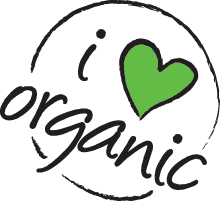Organic nutrition: Does it really matter?

The study, covered by FoodNavigator yesterday, suggests that it when it comes to nutritional value and risk of bacterial contamination, there is no difference between organic products and those produced using conventional farming methods.
The study (found in full by clicking here) has drawn a loud and mixed response from many who clearly feel that the study has missed the point. After all, does nutritional value really matter when it comes to organics?
Firstly, the study’s authors do concede that the vast majority of people do not buy organic produce for their nutritional value. They buy it for other reasons; be that environmental, for animal welfare, to reduce exposure to pesticides, or in the belief that organic foods just taste better.
The Organic Trade Association (OTA) for example notes that the perceived health benefits associated with lower pesticide residues are among the top reasons consumers cite for choosing to buy organic products. The research did also find lower pesticide levels, remember.
“Organic foods have the least chemicals applied in their production and the least residues in the final products,” said Christine Bushway, OTA’s executive director and CEO. “And, because organic livestock practices forbid the use of antibiotics, including the routine use of low level antibiotics for growth, organic meat contains less antibiotic-resistant bacteria.”
I won’t argue with Bushway on this one, but it seems, neither were the authors in the first place.
"Our goal was to shed light on what the evidence is," says Crystal Smith-Spangler, who led the study. "This is information that people can use to make their own decisions based on their level of concern about pesticides, their budget and other considerations."
So, does nutrition matter?
No. There, answered in one word. Next?!
The truth is that so long as organic produce (or conventional, for that matter) is not nutritionally deficient then there is no argument to be had. The whole thing becomes irrelevant to the conversation – meaning the ‘epic battle’ between organic and non-organic believers has to be fought on different ground.
For example, Dr Urvashi Rangan, director, consumer safety and sustainability for Consumer Reports adds that organic was always intended as a healthier way of farming, one that is good for the environment.
“The fact that this and many other findings, including nutritional analysis, aren’t conclusive does not mean that organic has no nutritional, health or safety benefits,” says Rangan.
“Even putting all else aside, the fact that organic production prohibits the use of antibiotics in raising animals has enormous public health benefits. That too is cited by the study but is not captured in the headlines or the author’s reactions,” he adds.
I agree. There are several reasons that people might want to buy organic produce, from pesticides, and chemical exposure, to the notion that these products generally just taste better – in addition to the avoidance of GMOs and the on-going debate on whether organic produce is more sustainable. Though that, I imagine, will have to wait for another day!
Nathan Gray is the science reporter for FoodNavigator.com and NutraIngredients.com. He has written on areas of food science and nutrition including flavour formulation, salt reduction, gut health, and the links between nutrition and disease. Nathan has a degree in Human Biosciences, specialising in nutrition.

























